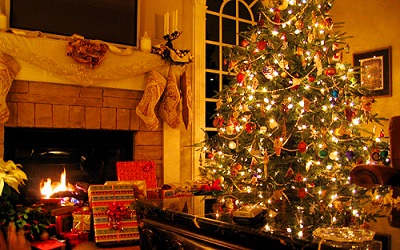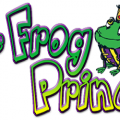圣诞新年将至,是否想把家里布置得更有节日气氛?墨尔本文波雅思和大家分享最新的圣诞装饰小窍门,同时还能学到地道精彩的词汇和英语表达,愿大家的圣诞假期过得更科学、更舒心!
This is the season of tangled(缠结的) Christmas tree lights, burnt-out menorah(犹太教的) bulbs and dried-up mistletoe(榭寄生). But as you deck the halls this year, there’s one thing that can keep such decorating nightmares at bay(keep…at bay远离,隔开): science. From how to keep a Christmas tree fresh and green to ensuring that festive lights don’t interfere with(干扰) your home’s Wi-Fi signal, here are five scientific tips that will help you stress less(放松些) this holiday season.
- Use the right lights
不要买老式闪烁灯,可能会干扰你家的wifi信号
You may have heard rumors that holiday lights can interfere with Wi-Fi signals, causing slow Internet connections and, subsequently, a very frustrating holiday. The reasoning behind this seasonal rumor is simple: Wireless networks operate using radio signals, and light bulbs also transmit radio signals, said Tom Coughlin, an electrical engineer and senior member at the Institute of Electrical and Electronics Engineers (IEEE). This means, theoretically, the radio signals produced by a whole string of lights could interfere with your Wi-Fi signal.
However, the incandescent bulbs(白炽灯) and light-emitting diodes (LEDs) used on most strands of modern holiday lights emit low-frequency radio signals and are not likely to cause this problem, Coughlin told Live Science in an email.
Stuart Lipoff, an IEEE fellow, said he agrees with Coughlin. While holiday lights produced decades ago (especially the ones that blinked) may have caused radio interference, today’s lights (even the flashing ones) are not likely to emit strong enough radio signals to mess up your wireless network, Lipoff said. So if you’re worried that your old lights will ruin your holiday, just buy some new ones and you should be in the clear.
- Trim (and water) the tree
注意修剪和浇灌圣诞树
Nothing will burst(引爆) your holiday bubble quite as fast as a house full of prickly tree needles(尖刺的树针). But there’s a scientific way to keep Christmas tree needles on the tree and off the floor. All you have to do is water the base of the tree regularly, said Rick Bates, associate professor of horticulture at Pennsylvania State University.
“Maintaining a high moisture level in the tree is the single most important factor in reducing needle loss and keeping the tree fresh,” Bates said on the Penn State College of Agricultural Sciences’ website.
How often should you water your tree? Bates recommends replenishing(再装满) the water-holding tree stand once a day during the first week that the tree is in your home (this is the time period when the fresh-cut tree absorbs the most water). The general rule of thumb(首要原则) is to provide the tree with 1 quart (that’s 4 cups, or just less than 1 liter) of water per inch of trunk diameter(树干直径).
You or your local Christmas tree dealer should also make a “fresh cut” in the base of the tree before bringing it inside for the holiday season. Re-cutting the stem(茎) of the tree just a little — about 0.25 inches or 0.64 centimeters — will help the tree take up more water and, consequentially, keep your tree looking fresh.
- Do not knot
不要打结
File this one under “knot theory.” Are your Christmas tree lights constantly getting tangled up together in a giant, messy jumble(杂乱的一大堆)? Believe it or not, there’s a scientific explanation for why this happens, and there are even a few practical ways to prevent it from happening.
In 2007, physicists from the University of California, San Diego, performed a series of experiments to figure out why some cords(绳索) are more likely to tangle than others. The scientists found that cords between 1.5 feet and 5 feet (0.46 to 1.5 meters) in length were more likely to knot when they were disturbed(打乱) or shaken inside of a container than were cords shorter than 1.5 feet. Cords that were longer than 5 feet were just as likely to knot as their shorter counterparts, which is bad news for anyone contending with(作斗争) 25-foot-long (7.6 m) strands of Christmas lights.
The researchers also found that flexible cords, like the ones that host your holiday lights, are more easily tangled than stiff(硬的) cords, like electrical wires. The best way to keep your light strands from knotting is to limit their movement, the researchers said. This means wrapping your lights in coils(线圈) until it’s time to decorate. To keep your holiday merry, bright and tangle-free, try wrapping lights around rectangular(矩形的) pieces of cardboard.
- Trim those wicks!
修剪蜡烛,烧得更久
There’s a scientific way to keep your Hanukkah candles burning for eight nights, and all you need to make it happen is a pair of scissors.
Before you light the menorah, trim the candlewicks(烛芯) between one-eighth of an inch to one-quarter of an inch (0.3 to 0.6 cm). Trimming the wicks will get the candle’s “combustion(氧化) process” off to a good start, said the National Candle Association, a trade association for candle makers in the United States.
When you light a candle, the wax at the base of the wick melts and is drawn up into the wick, where it adds fuel to the burning flame. A long wick causes too much fuel to be burned at once, making the candle’s combustion process less efficient. This also causes undesirable side effects, such as a flaring(闪耀的) or sooty(烟熏的) flame (the soot is made of unburned carbon particles(颗粒) escaping from the flame before they combust(燃烧)). By keeping a candlewick short, you can limit these sooty side-effects and prolong(延长) the life of your candles.
- Don’t wrap anything
免去包装礼物的麻烦,把时间用来选择更贴心的礼物
You won’t need any scissors (or wrapping paper, tape or bows) for this next science-inspired tip. Research suggests that beautiful packaging is not the key to giving the perfect gift, which is good news for anyone who feels stressed by the idea of wrapping dozens of presents this holiday season.
Instead of spending time and money on wrapping paper, try putting some more effort into choosing the right gifts for the people you care about, said Ryan Howell, a psychologist at San Francisco State University.
In a recent interview with Live Science, Howell said that a meaningful gift is one that “shows that you really know the person well, and you really care about them.” And that might mean finding a gift that you couldn’t wrap even if you tried.
Researchers from the Wharton School at the University of Pennsylvania have found that people who receive experiential gifts — things like concert tickets or a trip to an art museum — feel more connected to the gift giver than do people who receive material items as gifts. Just think: All that time you spend wrapping could be put toward planning the perfect day on the town with the ones you love.





